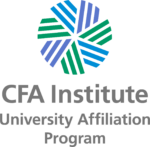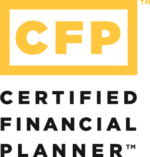Finance BS

The finance major at Fairleigh Dickinson provides you with an understanding of financial analysis, financial management, and financial systems. This program is offered through Fairleigh Dickinson’s Silberman College of Business at both the Florham Campus and Metropolitan Campus locations. The College holds prestigious accreditation by AACSB which recognizes the quality of its faculty, academic programs and resources. Less than a third of all U.S. business schools hold AACSB recognition, adding value to your undergraduate business degree from Fairleigh Dickinson University.
The BS in finance is affiliated with the CFA organization. Upon completion of the curriculum students are eligible to take the CFA level 1 exam. Scholarships are available for this licensing exam which enhances the student’s ability to attain a position in the investment banking industry. The CFA is an internationally recognized license and designation. Earning in significantly enhances one’s career path.
A second path in finance is approved by the Certified Financial Planner (CFP) Standards Board. Upon completion of the degree, students are eligible to take the CFP licensing exam. A CFP license enhances ones opportunities in the wealth management industry. Internships and Co-op opportunities are available for students in both of these finance areas.
Silberman College also maintains a Student Managed Investment Fund where investment decisions are made by student participants. Students in finance may participate in the Quinnipiac Game Challenge, the Bloomberg Trading Challenge and the CFA research challenge competitions. Silberman College maintains 24 Bloomberg terminals for student use on both the Madison and Florham campus. Students at all three campuses may participate in the student managed investment fund.
Degree Requirements
All students enrolled in the Bachelor of Science Degree program in Finance must complete the University and Business Core Curriculum. The two finance courses in the core are:
Additional major requirements are listed below. Current students should refer to their degree audit in Self-Service for the most accurate program requirements.
Finance Major Requirements
Required courses (12 credits)
- FIN4341 Financial Markets and Institutions
- FIN4343 Securities and Investments
- FIN4405 Analytical Methods in Finance
Electives (Select three)
- FIN3330 Personal Financial Management
- FIN3421 Sports Finance
- FIN4498 Internship in Finance Studies
- FIN4221 Capital Budgeting and Value Creation
- FIN4150 Working Capital Management
- FIN4351 Portfolio Management
- FIN4350 Derivatives
- Economics or Accounting course with permission of Economics and Finance Department Chair
NOTE: Students with specific questions about the major requirements should contact the advisor on their home campus.
Financial Planning and Wealth Management Concentration
Required courses (16 credits)
- FIN4340 Financial Markets and Institutions
- WMA4350 Investment Planning
- WMA3335 Personal Financial Management OR
- FIN3330 Personal Financial Management
- WMA4375 Risk Management and Insurance
- WMA4265 Personal Tax Planning
Major electives (required)
- WMA4267 Retirement Planning
- WMA4370 Personal Estate & Gift Planning
- WMA4380 Client Psychology in Financial Planning
- WMA4390 Financial Planning Capstone
Optional
WMA3335 must be taken before WMA3941; WMA3941 cannot be substituted for another WMA course without the permission of the Chairperson.
 Silberman College of Business is accredited by AACSB.
Silberman College of Business is accredited by AACSB.
